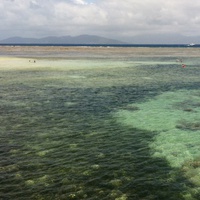Climate scientists make a bold prediction about sea level rise
The Guardian, 01 Sep 2016.
John Fasullo and colleagues predict that satellites will detect accelerating sea level rise within the next decade. Read the full story in The Guardian.
One of the great things about science is that it allows you to make predictions. Three top climate scientists just made a very bold prediction regarding sea level rise; we should know in a few years if they are correct.
As humans emit greenhouse gases, it’s causing the Earth to warm. That’s indisputable and proven. We can actually measure the amount of extra heat. Since most of it ends up in the oceans, we can also measure other changes in the oceans.
For instance, the oceans are rising. We know that’s indisputable. Measurements taken from physical gauges and from satellites confirm sea level rise. The cause of the rise is more complex.
Part of the rise is from ocean warming – warm water is less dense so the sea level rises as temperatures increase. Another part of the rise is from melting ice, especially ice that is currently on land (like glaciers and ice sheets). As this ice melts and flows into the oceans, the water levels rise. A third reason for sea level changes is from alterations of where water is stored on the planet. For instance, changing rainfall patterns and storage of water underground, in lakes, or in the atmosphere can affect sea levels.
The three ways we know sea levels are rising are from physical tide gauges, from satellites that measure the water height, and from satellites that measure where ice is stored across the globe. While tide gauge measurements go back many years, they only measure water levels at their location. Many tide gauges have to be in place to get an accurate sense of what is happening globally.
Satellites, on the other hand, are much more capable of taking global measurements. The problem with satellites is they have only been taking measurements since approximately 1993 (not nearly as long as tide gauges). So scientists try to combine these two measurements to get a long-term and global picture of what is really happening.
Continue reading the full story at The Guardian.












